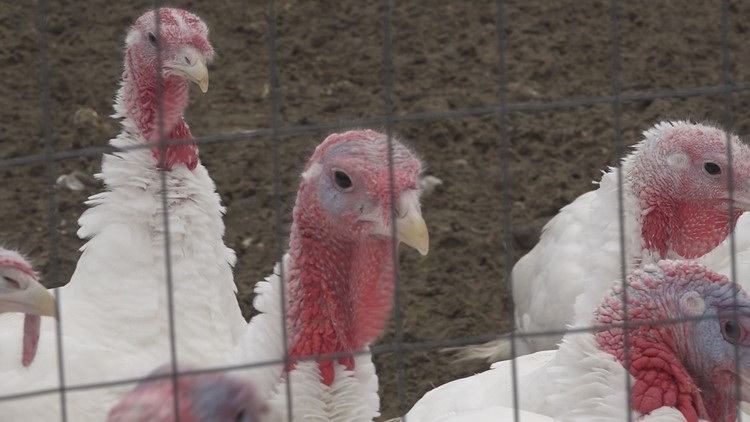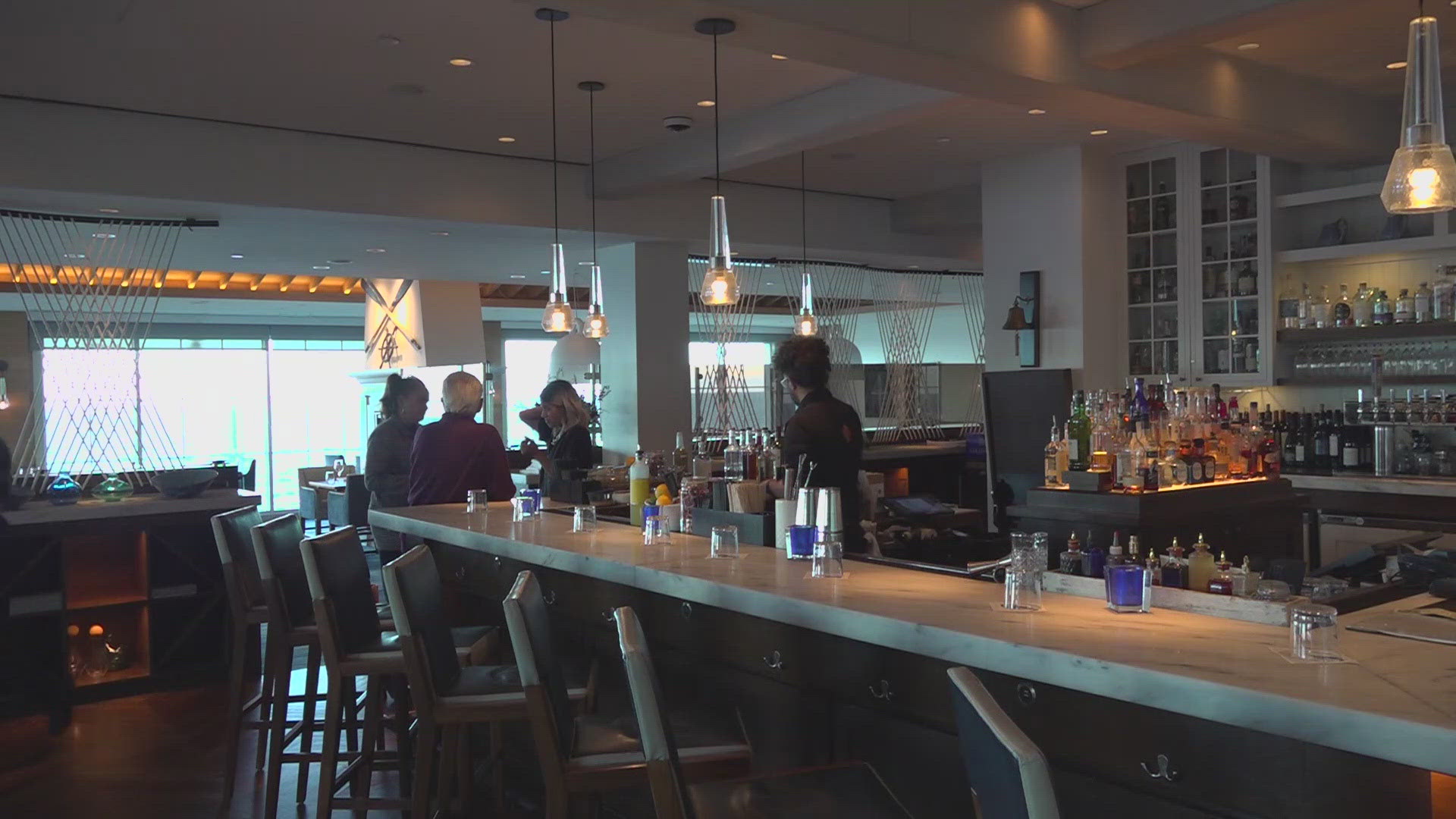MAINE, USA — Hesitation among Maine turkey farmers due to increased expenses and avian flu could lead to higher food costs for customers this Thanksgiving.
November is still months away, but getting those turkeys ready for families to purchase and eat is a long process for poultry farmers.
This year, Maine farmers are facing multiple challenges.
Scott Greaney owns Greaney's Turkey Farm in Mercer. He's been selling birds for 40 years and said this year, higher grain prices and avian flu fears are creating a "perfect storm" of challenges for poultry producers.
Reported outbreaks in Maine
The U.S. Centers for Disease Control and Prevention tracks avian flu cases. As of Friday afternoon, its website had counted nearly 38 million birds affected in the U.S. That's 36 states, 194 counties and 360 reported outbreaks.
In Maine, the U.S. CDC's tracker listed avian flu outbreaks in Washington, Waldo, Knox, Lincoln, Cumberland and York counties, with the most recent cases reported on April 5.
All of the reported outbreaks,10 total, came from backyard producers, with flock sizes ranging from three to 250.
Avian flu challenges
Dr. Colt Knight is an assistant extension professor and state livestock specialist at the University of Maine. In an email to NEWS CENTER Maine, he wrote avian flu is a genuine concern that farmers consider.
"Turkeys can take between 16 to 28 weeks to raise, and most small producers raise birds on pasture in order to take advantage of higher sales prices afforded by pasture-raised marketing," he said.
Migratory birds often share the same pasture as poultry and can spread the disease. Knight said turkey chicks cost more than chickens, and feed also costs more for turkeys than chickens. Housing for turkeys is often more expensive as well.
Losing an entire flock of turkeys due to avian flu would be a significant financial hit for a small poultry producer, according to Knight. Then there's the stigma of a confirmed outbreak, which may deter customers.
UMaine was actually going to conduct a pasture turkey research project in the summer but canceled it because of avian flu, Knight said.
Higher feed costs
Farmers are also facing higher feed costs this year, and that's not just limited to poultry. Greaney said in 2021, he was buying grain for his turkeys at $490 a ton. That same grain today is $660 a ton.
He added backyard producers were paying $44 for 100 pounds of grain, and when Greaney learned this, he ordered bulk grain and sold it to backyard producers at cost to help them out. Greaney sold his grain to them at $29 for 100 pounds.
Greaney said farmers work closely together to help each other out during tough times, including competitors who have never worked together before.
"In a crisis, everyone works together," he said.
While it's not uncommon to hear about potential turkey shortages each year, Greaney heard from Maine farmers who are reluctant to raise turkeys because of grain prices and avian flu.
Increased costs for customers
Some farmers don't want to risk investing their money in expensive grain to feed birds that might be euthanized after getting avian flu in the fall when migratory birds come back through Maine.
That could translate to higher prices for customers looking for turkeys at grocery stores this holiday season.
"This year, I think people are gonna be hard-pressed to find a lot of turkeys around," Greaney said. "I'd be surprised if stores have turkeys at 69 cents a pound."
The recommendation for poultry farmers to protect against avian flu is to keep fowl under cover, so feathers and droppings from infected migratory birds don't infect their flocks, but Greaney said customers want free-range birds. His turkeys are range-fed, so he can't get housing to keep those birds under permanent cover.
As for how much these increased expenses will cost customers, Greaney said he and his wife have been running the numbers. They're looking at around $4 or $4.50 a pound for farm-fresh turkey, which is up a little bit from last year, he said.
Farmer hesitation
Knight said he sympathizes with livestock producers holding off on raising animals this summer.
"My wife and I decided to not raise pasture chickens this year because of avian flu concerns and the rising cost of feed," he said.
Chase Harris is co-owner of the Harris Turkey Farm in West Newfield.
"We are very concerned about the avian flu, especially since dozens of birds had to be euthanized the next town over from us," he wrote in an email to NEWS CENTER Maine.
When he went to get his first batch of baby turkeys from a Massachusetts farm this year, Harris wasn't allowed out of his vehicle. The birds were loaded, and he paid through the window.
The farmer is trying to keep his flock protected by keeping visitors away from fencing and chasing off any waterfowl on his property.
Thus far, Harris said his flock is healthy.



